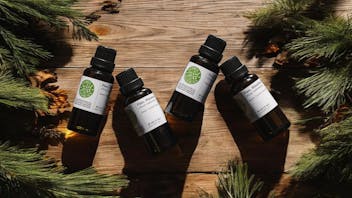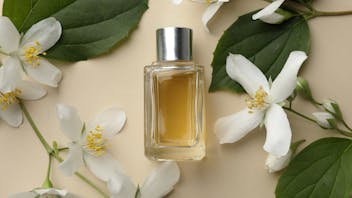Product Overview
Red Mandarin essential oil is cold pressed from the peel of fully ripened, mature fruits. It is the sweetest of our three Mandarin essential oils; comparatively, our Yellow MandarinYellow Mandarin is slightly less sweet and our Green MandarinGreen Mandarin is the least sweet and most tart of the three. Our Red Mandarin essential oil has a smooth, sweet-tart citrus aroma typical of this fruit with a slight floral undertone. Its familiar aroma is a real winner with children and is the perfect oil to put in a diffuser or room spray to refresh bed, bath or boudoir. Red Mandarin has an unusual citrus aroma that will add brightness and appeal to your natural perfumery compositions.
Originating mainly in south China, Mandarins were introduced to Europe in the early 1800s[1] and were brought from Italy to the United States about 1840-50.[2] According to Steffen Arctander, the fruit developed into the small, ellipsoidal Mandarin in Europe but in the United States, the fruit remained quite similar to the Chinese Mandarin and was renamed Tangerine.[3] Guenther notes that there is a marked difference in both the flavor and aroma between the two, as well as the physical properties and chemical compositions, with soil, climate, location, even cultural conditions and considerable hybridization contributing to the differences.4 For expression of the oil, harvest of the fruit before reaching maturity occurs from late October through the end of November.[5]
Like most citrus peel oils, chemical analysis of the Mandarins reveals a limonene dominance plus nearly a dozen tart, citrusy aldehydes at low concentrations that nonetheless contribute significantly to the overall aroma. One thing that distinguishes the Mandarins from Tangerine oils is a small percentage of methyl-N-methyl anthranilate, a nitrogen compound found more abundantly in the leaf oil that contributes to the calming aroma. The simple cheer and sweet warmth of the Mandarins are a boon to the spirit, making their appearance in mid-winter even more welcome.
1 Arctander, Steffen. Perfume and Flavor Materials of Natural Origin, 1960, p. 394.
2 Guenther, Ernest. The Essential Oils, Vol. III, 1949, p. 336.
3 Arctander, Steffen. Perfume and Flavor Materials of Natural Origin, 1960, p. 395.
4 Guenther, Ernest. The Essential Oils, Vol. III, 1949, p. 335.
5 Ibid, pp. 336-7.



